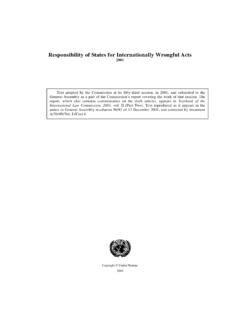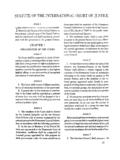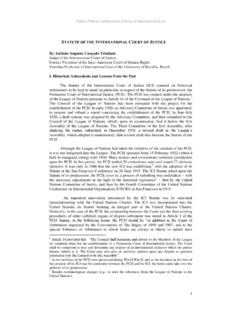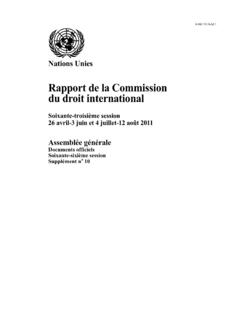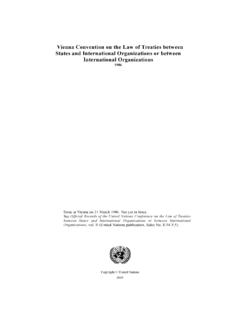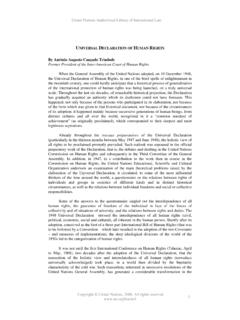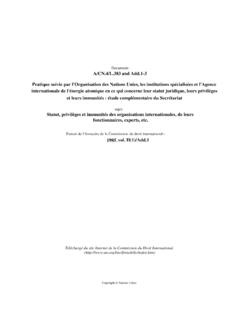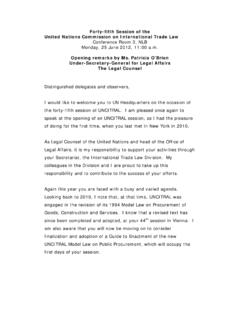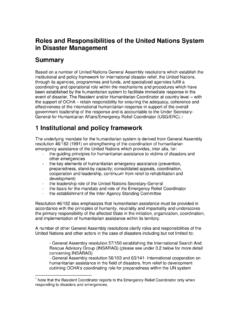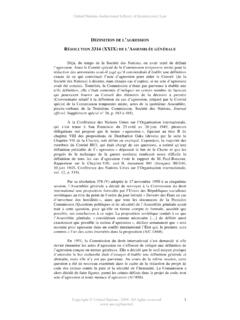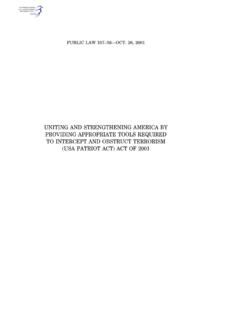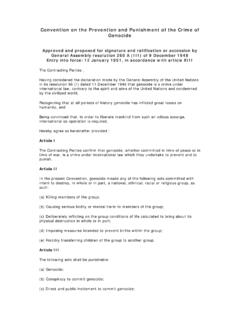Transcription of Principles of International Law Recognized in the Charter ...
1 Principles of International Law Recognized in the Charter of the N rnberg Tribunal and in the Judgment of the Tribunal 1950 Copyright United Nations 2005 Text adopted by the International Law Commission at its second session, in 1950 and submitted to the General Assembly as a part of the Commission s report covering the work of that session. The report, which also contains commentaries on the Principles , appears in Yearbook of the International Law Commission, 1950, vol. II, para. 97. 2 Principles of International Law Recognized in the Charter of the N rnberg Tribunal and in the Judgment of the Tribunal Principle I Any person who commits an act which constitutes a crime under International law is responsible therefor and liable to punishment.
2 Principle II The fact that internal law does not impose a penalty for an act which constitutes a crime under International law does not relieve the person who committed the act from responsibility under International law. Principle III The fact that a person who committed an act which constitutes a crime under International law acted as Head of State or responsible Government official does not relieve him from responsibility under International law. Principle IV The fact that a person acted pursuant to order of his Government or of a superior does not relieve him from responsibility under International law, provided a moral choice was in fact possible to him. Principle V Any person charged with a crime under International law has the right to a fair trial on the facts and law. Principle VI The crimes hereinafter set out are punishable as crimes under International law: (a) Crimes against peace: (i) Planning, preparation, initiation or waging of a war of aggression or a war in violation of International treaties, agreements or assurances; (ii) Participation in a common plan or conspiracy for the accomplishment of any of the acts mentioned under (i).
3 (b) War crimes: Violations of the laws or customs of war which include, but are not limited to, murder, ill-treatment or deportation to slave-labour or for any other purpose of civilian population of or in occupied territory, murder or ill-treatment of prisoners of war, of persons on the seas, killing of hostages, plunder of public or private property, wanton destruction of cities, towns, or villages, or devastation not justified by military necessity. (c) Crimes against humanity: Murder, extermination, enslavement, deportation and other inhuman acts done against any civilian population, or persecutions on political, racial or religious grounds, when such acts are 3done or such persecutions are carried on in execution of or in connection with any crime against peace or any war crime .
4 Principle VII Complicity in the commission of a crime against peace, a war crime , or a crime against humanity as set forth in Principle VI is a crime under International law. _____
